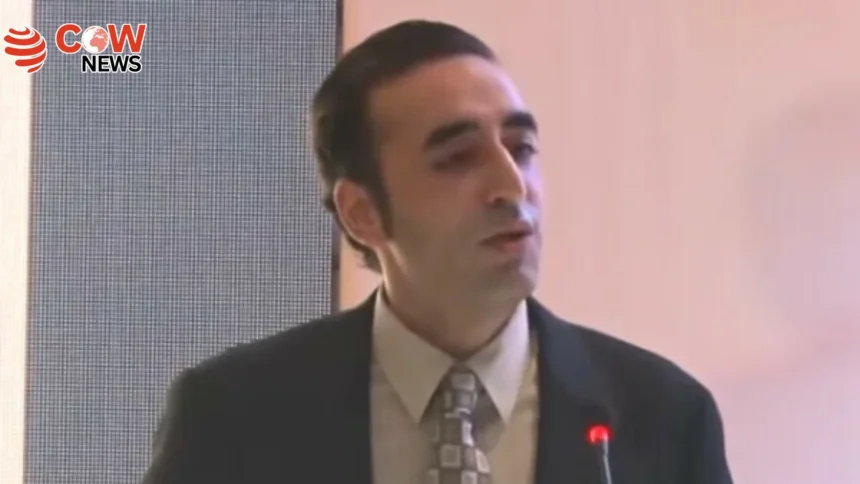Islamabad( The COW News Digital)Chairman of the Pakistan Peoples Party (PPP), Bilawal Bhutto Zardari, has criticized the Taliban-led Afghan government for breaking its commitments, warning that such violations are contributing to regional instability.
Speaking at the opening session of the international conference titled “Pakistan’s War Against Terrorism: A Global Perspective”, organized by the Islamabad Policy Research Institute (IPRI), Bilawal emphasized that surrendering has never been part of Pakistan’s dictionary.
“The Taliban government’s failure to honor the Doha Agreement threatens the entire region’s stability,” Bilawal said. “We urge the interim Afghan regime to respect its commitments and contribute to peace in the region.”
He further pledged that Pakistan will continue its fight against terrorism to ensure a secure future for the next generations. “Our resolve is firm. We have paid a high price — in blood and in economy — and we will never surrender,” he stated.
Bilawal also used the platform to call on India to engage in dialogue with Pakistan to work toward lasting peace. He highlighted the Kashmir conflict, emphasizing the need for its resolution in accordance with the aspirations of the Kashmiri people.
Addressing water issues, Bilawal criticized India’s alleged use of water as a weapon and demanded an end to such tactics, calling it a violation of basic human and international rights.
Highlighting Pakistan’s achievements in the war on terror, Bilawal underscored the nation’s sacrifices. “Pakistan’s experience in counterterrorism offers valuable lessons for the international community,” he noted.
He stressed that terrorism has no religion, nationality, caste, or creed and respects no law. Bilawal called for a united global response to tackle the evolving threat of terrorism.
“We cannot afford to act alone. The fight against terrorism requires collective international will and cooperation,” he concluded, reaffirming Pakistan’s commitment to global peace and security.
Bilawal’s remarks come at a time of heightened tension in the region, with growing concerns over militant movements across borders and the lack of adherence to international peace accords by the Afghan Taliban.







